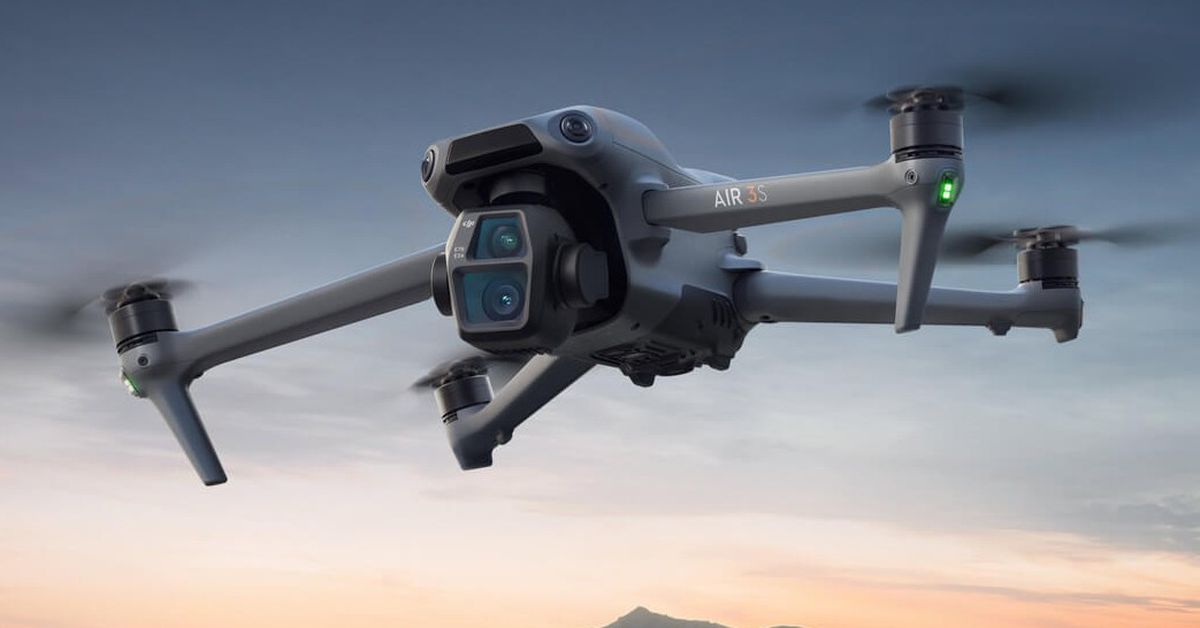DJI Escapes US Drone Ban But May Face Automatic Reinstatement Without Trump Intervention

The National Defense Authorization Act (NDAA) and Its Impact on DJI
The US Senate has passed the National Defense Authorization Act (NDAA), a bill that authorizes defense spending for the upcoming year. While this legislation may seem far removed from the world of drones, it has significant implications for DJI, the largest drone company in the world. The NDAA contains provisions that could lead to a ban on DJI products in the United States, although not immediately as China’s DJI feared.
The Countdown Begins
Although the NDAA did not contain the full "Countering CCP Drones Act" provisions, which would have blocked imports of DJI products into the US, it does start a one-year countdown. During this time, DJI’s products (and those of rival drone maker Autel Robotics) will be automatically banned unless an appropriate national security agency declares that they do not pose an unacceptable risk to the national security of the United States.
The FCC and the "Covered List"
If DJI fails to convince a national security agency to make this declaration, the Federal Communications Commission (FCC) will add their gear to its "covered list" under the Secure and Trusted Communication Networks Act. This list prohibits the use of covered equipment on US networks and bars the FCC from authorizing internal radios for use in the US. Effectively, this would block all imports of DJI products.
Consequences for Existing Users
While this ban would not affect existing users who continue to operate their DJI gadgets, it would prevent new DJI drones from being imported into the United States. Moreover, every DJI product with a radio or camera, including popular models like the Osmo Pocket 3, would technically be banned.
The Text of the Bill
The bill’s text (PDF) explicitly states that DJI’s products should be included on the covered list, preventing them from exploiting loopholes such as whitelabeling their drones under other brand names or licensing their technology. The bill instructs the FCC to add any subsidiary, affiliate, or partner and any entity with a technology sharing or licensing agreement to the covered list.
A Must-Sign Bill
The NDAA has already passed both houses of Congress with strong bipartisan support. It is now headed to President Biden’s desk, where it is considered a must-sign bill. Failure to sign would trigger a partial government shutdown, making it imperative that the president takes action on this legislation.
DJI’s Future in the US
It will be up to the Trump administration to decide whether to rescue DJI from its impending ban. If President-elect Trump prefers fewer DJI products in the country, he may not need to lift a finger. In any case, the ball is now in DJI’s court.
A New Era for DJI
Even without the NDAA, DJI was facing increased US scrutiny due to concerns over its products’ import restrictions (allegedly over the Uyghur Forced Labor Prevention Act). The company has already made a conscious decision to ship fewer drones into the United States. Furthermore, in October 2020, DJI sued the US Department of Defense for labeling it a "Chinese Military Company." In a blog post, DJI views the NDAA as "good news" but expresses concerns about the lack of specificity regarding which agency would determine whether its products pose a risk.
DJI’s Plea to Congress
In an attempt to address these concerns, DJI is asking Congress to specify a government agency to carry out this task and provide evidence-based assessments. The company also requests the opportunity to reply to any findings. This plea comes as DJI continues to face scrutiny from US authorities.
The Road Ahead
As the NDAA moves forward, it remains to be seen whether DJI will be able to convince a national security agency that its products do not pose an unacceptable risk to the United States’ national security. If successful, this would delay the automatic ban on DJI’s products and potentially mitigate the impact of the legislation.
The NDAA has significant implications for DJI and the drone industry as a whole. While the immediate ban that China’s DJI feared may not come to pass, the one-year countdown starts now. With increased scrutiny from US authorities and potential blockages on new product releases, DJI must navigate this uncertain landscape carefully.
- DJI sues the US Department of Defense for labeling it a ‘Chinese Military Company’
- DJI says US customs is blocking its drone imports
Comment
Leave your thoughts and opinions on this story in the comments section below.